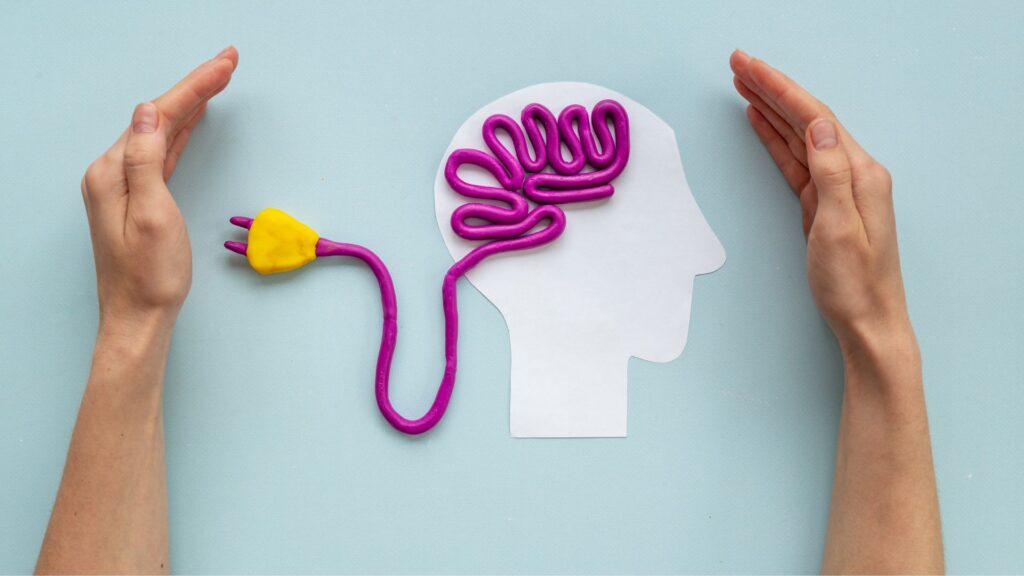As we step into 2025, many of us will set resolutions that nourish our bodies, careers, and interpersonal relationships. We promise ourselves to eat healthier, exercise more, or finally take on that project we’ve been putting off. But what if, in addition to that gym membership, new self-help book, or better sleep routine, this year we committed to something deeper—something that fuels all areas of our lives? What if we prioritized our mental and emotional wellness?
Your mental health isn’t just a part of your well-being—it’s the foundation. It affects your physical health, your career achievements, your personal growth, and the quality of your relationships. Just like you wouldn’t ignore your physical fitness, why would we neglect the one thing that powers all of these other areas of our lives? Stress, unresolved emotions, and untreated mental health struggles can hold you back, while addressing them can free you to unlock your true potential.
The Connection Between Mind and Body

At HCA, we understand that mental health isn’t a standalone piece of your wellness journey—it’s the glue that holds everything together. When your mind is in balance, your physical health and emotional resilience follow suit.
Think about it: when you’re stressed, your body reacts. You might notice your shoulders tense up, or your heart rate spike. Your immune system may even be affected, making you more vulnerable to illness. On the other hand, when you’re feeling mentally clear, relaxed, and at peace, your body follows suit. The mind and body are deeply interconnected, and one cannot thrive without the other.
So, why not treat your mind with the same care and attention you give your body? This year, make mental wellness a priority—after all, when your mental health thrives, everything else in your life just seems to fall into place.
How to Make Mental Wellness a Priority in 2025
1. Start with Self-Awareness
Self-awareness is the first step in any journey toward mental wellness. You can’t address what you don’t acknowledge. Start by checking in with yourself regularly. How are you feeling emotionally, physically, and mentally? What are the patterns in your life that drain or uplift your energy?
Self-awareness also means paying attention to your thoughts. Are they generally positive and supportive, or do you often find yourself overwhelmed by negative self-talk? The more you practice noticing your mental and emotional state, the more equipped you’ll be to take action and implement changes where necessary.
2. Consider Therapy or Counseling
One of the most powerful steps you can take toward improving your mental wellness is seeking professional support. Therapy and counseling provide you with the tools to navigate life’s challenges with greater resilience. A counselor can help you address deep-rooted issues, improve your coping skills, and give you a safe space to explore your thoughts and emotions without judgment.
Mental health support isn’t just for those in crisis—it’s for anyone who wants to live more intentionally, understand themselves better, and develop stronger emotional tools for managing life’s ups and downs.
3. Healthy Coping Mechanisms
We all experience stress. But the way we deal with it makes all the difference. Healthy coping mechanism —like journaling, mindfulness meditation, physical activity, or talking to a trusted friend—can help you manage your emotions and prevent negative thoughts from spiraling.
Make 2025 the year you develop healthy habits to cope with stress and emotions. Try creating a “toolbox” of strategies that work for you: When you’re feeling overwhelmed, reach for a method that brings you calm and clarity.
4. Set Boundaries for Your Mental Health

If you’re familiar with our blog, you know how important boundaries are for mental wellness. Setting clear boundaries in your personal and professional life allows you to protect your energy and prioritize your well-being. Boundaries help you maintain balance, prevent burnout, and reduce stress.
This year, take time to evaluate your boundaries. Are you giving too much of yourself to others? Are there areas of your life where you need to say “no” to preserve your mental health? Boundaries are not selfish; they are essential for your growth and stability.
5. Commit to Regular Mental Check-ins
Mental health isn’t something you can check off your to-do list—it’s an ongoing commitment. Regular mental check-ins are essential. Consider setting aside time each week to assess how you’re feeling mentally and emotionally. What’s working well for you? What needs more attention?
By making mental health a part of your routine, you can address small issues before they become larger ones. Whether it’s scheduling therapy sessions or simply taking a walk outside, make sure you regularly tend to your mental and emotional needs.
6. Practice Gratitude
Gratitude is more than just a feel-good exercise—it’s scientifically proven to improve mental health. When you focus on what you’re thankful for, you shift your mindset from scarcity to abundance. This simple practice can help you feel more grounded, positive, and connected to your life.
Start small. Each day, jot down a few things you’re grateful for. As you begin to appreciate the little things, you’ll start to notice how much more you have to be thankful for. Over time, this can shift your overall perspective and improve your mental outlook.
Why Mental Wellness is the Key to Everything Else

Mental wellness doesn’t just improve your mood—it can help you achieve more in all areas of your life. When you’re mentally strong, you have the resilience to face life’s challenges, whether they’re personal or professional. You can manage stress, handle conflict more effectively, and show up for the people who matter to you.
The power of a healthy mind extends to all areas of your life. It gives you the clarity to focus on your goals, the strength to overcome setbacks, and the peace to enjoy your successes. In a world that often prioritizes physical health, it’s time to remember that your mind is just as deserving of care and attention.
Take Action This Year for a Happier, Healthier You
As you look ahead to 2025, we encourage you to make a commitment to your mental wellness. Make it just as important as your physical fitness, your career goals, or your personal relationships. You don’t have to tackle everything all at once—small steps toward mental wellness can lead to big changes over time.
Start by checking in with yourself, consider seeking professional support, and make mental health a part of your routine. Prioritize your mental wellness, and watch as everything else in your life begins to fall into place. Because when you take care of your mind, everything else becomes easier.
